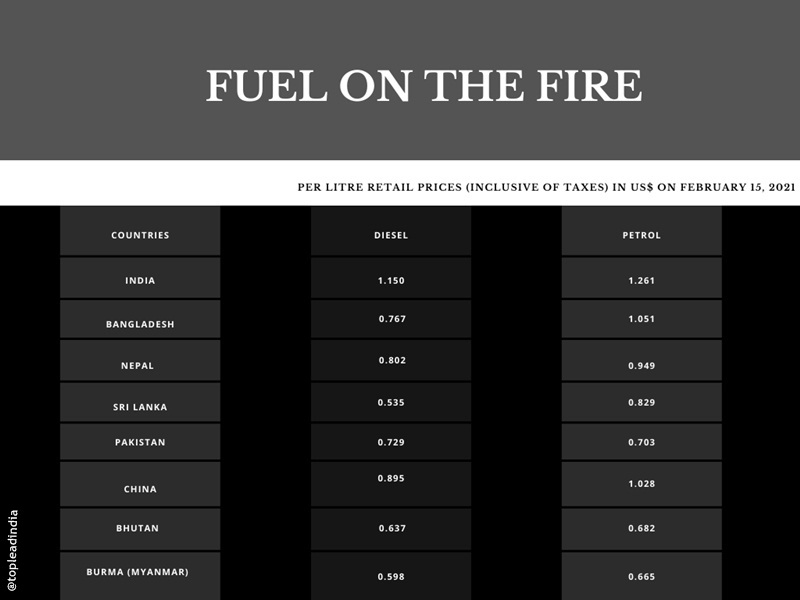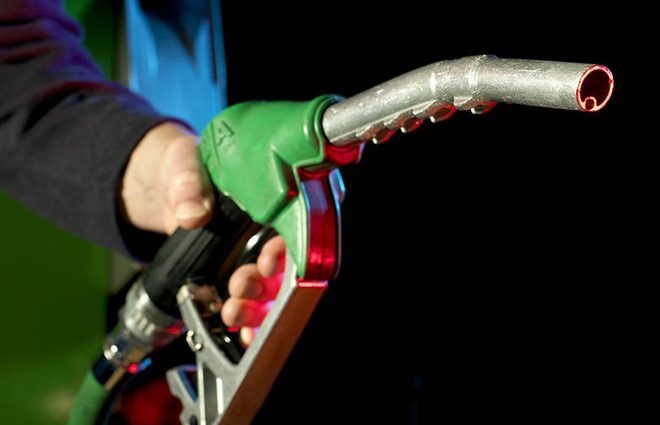Nirbhay Kumar
New Delhi: Diesel and petrol prices in India have gone through the roof surpassing even economically-tattered Pakistan and Burma which recently saw military coup.
With Modi government remaining unfazed to the demand for lowering high duties on the mass fuel items, no relief seems to be in sight for the common people who have been struggling to manage their expenses in the face of lower income due to economic slowdown.
As per GlobalPterolPrices.com which keeps track of energy rates across the world, diesel and petrol prices in India on February 15, 2021 were $1.150 (Rs 83.62) and $1.261 (Rs 91.758) respectively. This is highest in the South Asian region and perhaps also in the world.
The portal updates fuel price data on weekly basis.
Even land-locked Himalayan nations Bhutan and Nepal have managed to keep diesel and petrol prices (see chart) at lower levels despite the double whammy of global slowdown and corona virus pandemic.

Source: GlobalPetrolPrices.com
Not surprisingly, there have been reports of people in Bihar and Uttar Pradesh crossing over to Nepal to buy cheaper fuels.
Participating in the debate on Union Budget in Rajya Sabha, senior Congress leader and former Finance Minister P Chidambaram accused the Modi government of economic mismanagement. He had said that because of the incompetent management, the economy is at same level as it was three years ago.
Top opposition leader and a veteran on economic issues, Chidambaram has also challenged key Budget estimates presented by Finance Minister Nirmala Sitharaman.
In his scathing attack on the government, he has maintained that in absence of correct estimates the Budget – Annual statement of revenue and Expenditure is a worthless pile of papers.
As Indian economy was in the grip of a perennial slowdown even before coronavirus pandemic hit the country in March last year, the government has relied on higher taxes on diesel and petrol to make up for revenue shortfall.
There were expectations that the government will propose a marginal increase in tax rates for super rich and wealthy but it chose to instead monetize public assets and sell equity stakes in PSUs including those remaining profitable for years.
As the ruling BJP has brute majority in the Lok Sabha and its ability to swing narratives in its favour, the government has largely managed to scuttle political dissent. With cultural issues prevailing over all other issues, rationale and logic often take back seat.
Most media outlets, considered a watchdog and fourth pillar of democracy, generally side with the government narrative and amplify the agenda set by top political executives ruling the country.
The main opposition which lost credibility years back is yet to cover any meaningful ground and hence does not have the power to fight against unpopular policies on the streets. They are easily defeated on social media, the new battleground, given that the ruling party has a large army of digital warriors.

